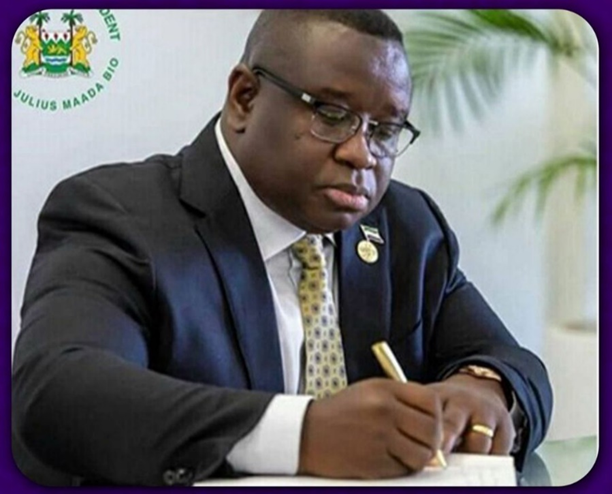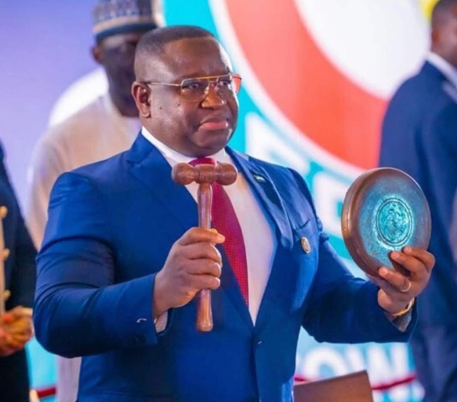By Mackie M. Jalloh
A sweeping new law intended to safeguard the welfare of Sierra Leone’s children has reignited one of the country’s most divisive debates — the question of whether the state should criminalize Female Genital Mutilation (FGM).
President Julius Maada Bio this week signed the Child Rights Act 2024 into law, an event hailed by government officials as a historic advancement in child protection and governance. The law, which was passed by Parliament in July 2025, seeks to modernize Sierra Leone’s child welfare system, ensuring that every child enjoys the rights to education, health, identity, and protection from abuse and exploitation.
But amid the celebrations, the omission of an explicit clause banning FGM has drawn strong criticism from women’s rights activists and child protection groups, who accuse lawmakers of prioritizing cultural appeasement over the safety of girls.
The signing was announced by the Solicitor General during the Civic Day Series in Bo City and later confirmed by Mohamed Jaward Nyallay, Outreach Coordinator at the Ministry of Information and Civic Education. The Ministry described the law as “a landmark commitment to children’s well-being and future,” emphasizing that it aligns Sierra Leone’s child protection framework with global conventions, including the United Nations Convention on the Rights of the Child (UNCRC) and the African Charter on the Rights and Welfare of the Child.
Government spokespersons highlighted that the new Act updates outdated sections of the 2007 legislation, closing gaps related to child labor, early marriage, and access to education. It also introduces stronger enforcement mechanisms for birth registration, child maintenance, and guardianship.
However, many Sierra Leoneans, particularly within the activist community, believe that the government missed a rare opportunity to confront FGM directly — a practice that continues to affect an estimated 80 to 90 percent of women and girls in the country.
Mariama Samura, a gender rights campaigner based in Freetown, expressed disappointment at the law’s silence on the issue. “How can we claim to be protecting children while leaving out one of the gravest violations against them?” she questioned. “FGM is not culture; it is violence. Until Sierra Leone is brave enough to outlaw it, we cannot talk about genuine progress for girls.”
The debate around FGM remains one of the most politically and culturally sensitive in Sierra Leone. The practice is deeply embedded in traditional rites of passage and is defended by some secret societies and community leaders as a marker of womanhood. Previous attempts to legislate against it have faced strong resistance, with some politicians fearing backlash from powerful traditional institutions.
Supporters of the new Act argue that tackling FGM requires a gradual, culturally sensitive approach rather than outright criminalization. They suggest that awareness, education, and alternative rites of passage are more effective tools for long-term change.
Dr. Ibrahim Kamara, a civic educator who attended the event in Bo, shared that view. “The law should not only punish but also persuade,” he said. “We must win hearts and minds within the cultural institutions that practice FGM. Otherwise, the law risks being ignored or resisted.”
Still, human rights organizations insist that silence in legislation can amount to complicity. Several civil society coalitions, including the National Child Rights Coalition (NCRC), have pledged to continue lobbying Parliament for a supplementary amendment explicitly prohibiting FGM, framing it as a moral and human rights obligation.
As the government begins implementation of the Child Rights Act 2024, attention now turns to how effectively it will enforce its new provisions and whether future reforms will confront the contentious issue of FGM head-on.
For many, the new law represents progress — but not victory. While it strengthens the legal protection of children on paper, activists argue that true reform will only come when Sierra Leone confronts the cultural taboos that continue to endanger its girls.



